Do I need a visa to visit Malta?
Jun 11, 2022 • 4 min read

Simple visa rules make it easy for citizens of dozens of countries to visit Malta on a spontaneous trip © Solovyova / iStockphoto / Getty Images
For travelers from many countries, accessing Malta as a visitor is very straightforward, putting the sunshine and history within easy reach. If you are also traveling to other countries around Europe as well as Malta, just remember to not go over the maximum number of days allowed for your visit to the Schengen area . Here's what you need to know about visas for Malta.

Who can enter Malta without a visa?
All citizens of the European Union are entitled to enter Malta and travel freely with a national identity card, except for travelers from Ireland, who must use an Irish passport card. At present, travelers from 63 countries including Australia, Canada, New Zealand, the United Kingdom and the United States can also enter Malta and other countries in the Schengen area visa-free.
Travelers from visa-free countries will need a valid passport. The passport's expiry date must be at least 90 days after your confirmed departure date from Malta, and passports cannot be more than ten years old.
Who needs a tourist visa to enter Malta?
Malta is part of the Schengen area , a grouping of 26 European nations that issue a common visa allowing travelers a maximum stay of 90 days during any 180-day period. This is valid for travel across the Schengen Area.
Travelers from countries who cannot enter Malta visa-free must apply for a Schengen tourist visa in advance of travel – details are on the government's Identity Malta website . Information required for the application includes dates and details of transport arrangements to enter and exit the Schengen zone, proof of accommodation, and proof of financial means of support. The cost for the application is €80 for adults and €45 for children.

Extending a Schengen area visa
If you wish to stay in the Schengen area for longer than 90 days, it is possible to extend a Schengen visa, but extensions are granted rarely, and approval is usually only given for humanitarian reasons or because of force majeure (for example, a natural disaster in your home country). For longer stays in Malta specifically, you can apply for a National Visa – also known as a Long Stay or ‘D’ visa.
ETIAS (European Travel Information and Authorization System) rules for 2023
Under the new European Travel Information and Authorization System (ETIAS) – expected to go live from early 2023 – travelers from the 63 non-EU countries currently permitted visa-free entry to the Schengen area will need to complete an online application to confirm authorization to enter the Schengen zone.
There's a €7 fee and applications will take around ten minutes to complete online. Successful authorizations will be valid for three years, or for the remaining validity of the applicant's passport if it expires sooner. Note that a maximum stay in the Schengen area of 90 days across a 180-day period will still apply.
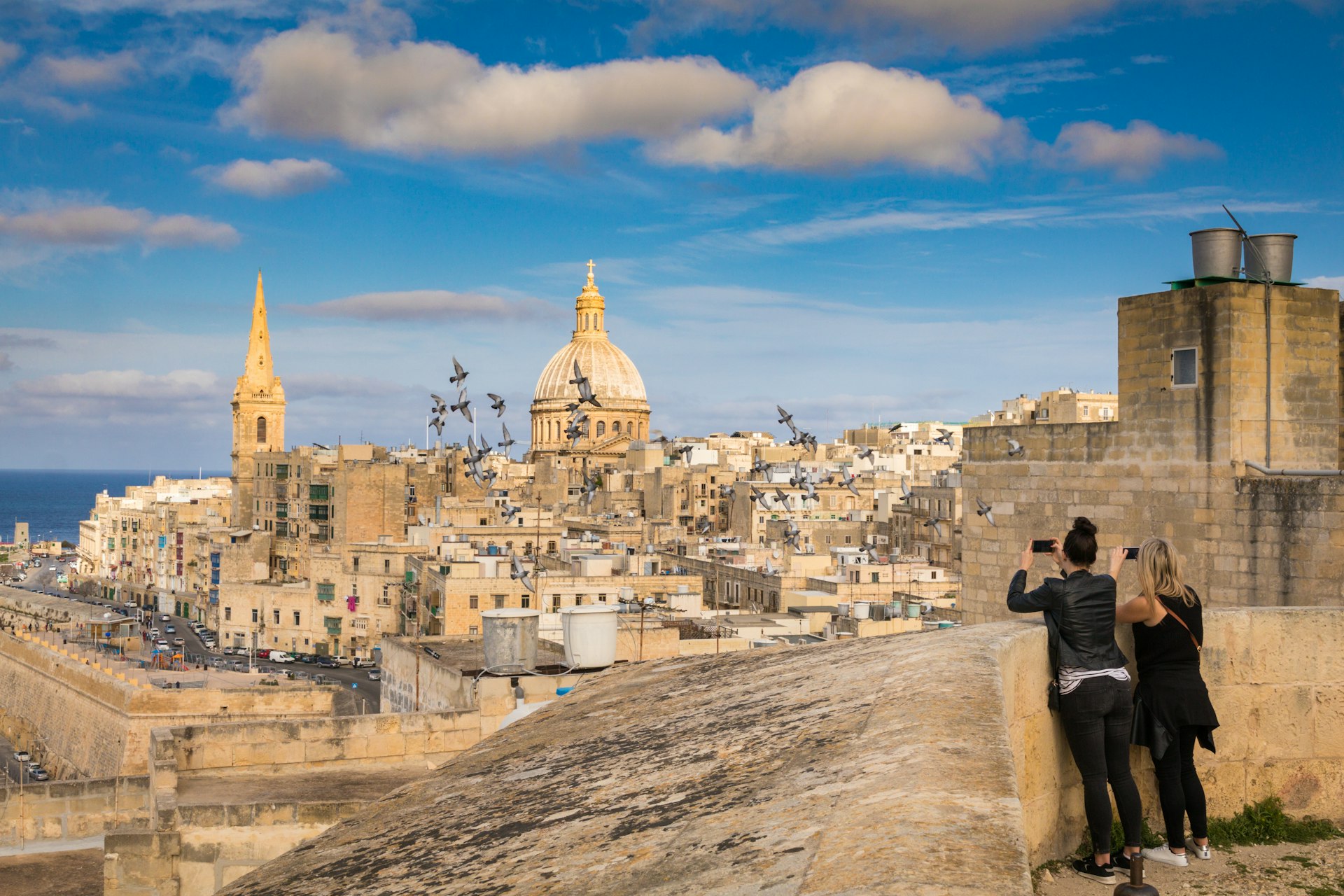
Post-Brexit travel from the UK to Malta
The UK departed from the European Union in 2020, but citizens of the UK are still permitted to enter the Schengen area without a visa, including to visit Malta. However, British travelers will need to complete an application via ETIAS once the system goes live.
What if I need to leave and re-enter the Schengen area?
Multiple-entry access to the Schengen area – enabling travelers to re-enter after exiting to non-Schengen countries – is usually granted automatically to visitors from the 63 visa-free countries. It's a convenient option for travelers from southern hemisphere countries such as Australia and New Zealand who also wish to visit popular non-Schengen zone destinations including the UK and Turkey.
When exiting and re-entering Malta and the Schengen zone, it's vital to still adhere to the maximum stay of 90 days across a 180-day period (this starts from the date you first enter the Schengen area).
COVID-19 rules for entry to Malta
As of May 9, 2022, wearing a mask in Malta is only mandatory on flights, or when visiting a hospital or care home for the elderly. While not mandatory, the Maltese government does still recommend masks are worn when attending large gatherings.
Travelers no longer need to complete a Passenger Locator Form (PLF) but must present either a vaccine certificate, a negative PCR test, or a COVID recovery certificate upon arrival. See Malta's Health Ministry website for the latest on COVID-19 regulations.
Explore related stories

Astrotourism
Dec 27, 2023 • 8 min read
Spectacular things are happening in the skies all over the world in 2024. Read on for a year-long guide to where you will want to look up.

Oct 25, 2023 • 7 min read

Sep 29, 2023 • 9 min read
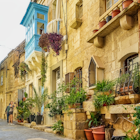
Jul 20, 2023 • 6 min read

Jan 6, 2023 • 6 min read

Sep 28, 2022 • 6 min read

Jun 3, 2022 • 6 min read

May 22, 2022 • 7 min read

May 14, 2022 • 7 min read

May 11, 2022 • 6 min read
Malta Tourist visa
Required documents for malta schengen visa.
Documents for a Maltese visa application must be completed or translated in writing into English or Maltese.
- At least 2 blank pages
- With the applicant’s signature
- Not more than 10 years old
- Valid for at least 3 months after the expiration of the requested visa
- Previous passport, if applicable
- Size 3.5 x 4.5 cm
- Plain white background
- Taken within the past 6 months
- Forward-facing with facial features visible and clear
- Completed application form
- Biometric data (Fingerprints)
- Malta Visa fee
- Travel Itinerary or plan
- Proof of return to the country of residence or forward ticket to another country
- Reason for travel to Malta
- Flight reservations
- Proof of financial means (bank statements over the last 3-month period, personal properties, and/or other assets)
- Proof of accommodations (with booking reference number, location, and contact number of the hotel)
- Valid through the entire visa period
- Valid in all Schengen countries
- Minimum coverage of 30,000 EUR must be purchased
- Insurance conditions such as validity, duration, and extent of your coverage to be clearly stated on the confirmation letter or insurance document
- Name and address of employer
- Nature of employment
- Starting date of employment
- Purpose of travel
- Duration of time off from work for travel
- Personal-ID page of passport.
- Older Schengen visas (if relevant).
- Residence permit (if relevant).
Applicants below the age of 18 are required to submit the following additional requirements:
- If the minor applicant is adopted, adoption documents are required
- If the minor applicant's parents are divorced, divorce papers are required
- If the minor applicant's parents are deceased, death certificates are required
- Letter of consent from both parents or legal guardians
- Passport copies of both parents or legal guardians
It may also be necessary to submit supplementary documents in relation to your travel visa application.
Malta Visa Fees
The standard fee for the application for a Malta Schengen visa is 80 EUR. However, there are particular applicants who are exempted from fees, such as most student visas and visas for children below the age of 6. Applicants will probably have to pay a separate, non-refundable service payment with their application.
Malta Visa Application Steps
- Prepare all the required documents.
- Select “Tourism” as the reason for travel on the visa application form.
- Decide the number of entries needed to Malta or the Schengen area.
- Application procedures for a Malta Schengen visa may vary, depending on where you are applying from. Applicants can download, complete, and print out the online form here .
- Submit the paper copy to the Malta consulate or visa processing center.
- Most applications require an in-person appointment at the nearest Maltese Consulate or visa center in order to submit the application. Alternatively, applications may be submitted without a prior appointment during normal operating hours. Contact the Maltese Consulate or visa center to determine if there is a need to schedule an appointment.
- Note: Applications must be submitted at least 15 days before the date of travel but not earlier than 6 months before the date of travel.
- Generally, applications must be submitted in person to the Maltese Consulate or visa processing center. However, there may be a few differences in the submission procedures.
- Applicants will likely be required to submit their fingerprints (biometric data). Children below the age of 12 are exempted from biometric data collection, but facial photo capturing is a must from the age of 6 years and above. Applicants who have submitted their fingerprints within the last 59 months will most likely not be asked to resubmit.
- Applicants may also be asked to come back on another date for an interview regarding their trip.
- Pay the visa application fee.
When to Apply for Malta Visa
Visa applications must be submitted at least 15 days before the travel date but no earlier than 6 months before the travel date.
Where to Apply
- Applications should be submitted personally either through the Maltese Consulate, or the consulate of a country that represents the consular affairs of Malta.
- In countries without any Maltese consulate, applications may be submitted through a Schengen state consulate representing the interests of a Maltese consulate.
- Applications should be submitted only in the country of citizenship or residence.
- A valid reason is needed for applicants who must submit through a consulate or visa processing center in a country where they are currently legally present but not a resident. Valid reasons include legally staying in the country on a valid permit or visa and that the consulate in that country has accepted the reason for applying through them and has decided to process your application.
Malta Visa Processing Time
Generally, it takes approximately 7 to 15 days to process Malta Schengen visa applications. However, in some cases it might take as long as 60 days.
For Malta approved visa applications:
Applicants must ensure that the information on the visa is complete and valid upon collection.
Applicants who have received their Schengen Visa for Malta should remember the following things:
- Inform the Maltese Consulate or visa application center of any change to your itinerary after submission is completed.
- The approval of a Schengen visa does not guarantee entry upon arrival to Malta or other countries in the Schengen area.
- Additional documents pertaining to your financial means or accommodation may still be required to gain entry to Malta or other Schengen areas.
For Malta denied visa applications:
If your application for a Maltese Schengen visa was rejected, you have the right to appeal the decision within 15 days.
The appeal process begins by picking up the standard-issued visa refusal form which also has the details of the reason for the rejection and the procedures of the appeal process.
The appeal should be written in English and along with a copy of the original refusal certified by a notary, should be submitted to Malta’s Immigration Appeals Board at the following address:
The Secretary Immigration Appeals Board 109, Triq Zekka Valletta VLT 1517
A copy of the appeal should also be emailed to [email protected]
A non-refundable fee must be paid for the appeal to be processed.
Check if you need a visa for your next destination
Latest news and articles.

Greece unveils visa-on-arrival program for Turkish tourists to 10 islands

Ireland imposes visa requirements on citizens of Dominica, Vanuatu, and Honduras

The essential traveler's guide to understanding various types of visas

- Schengen Visa Guides
Update April 12, 2024
Information for u.s. citizens in the middle east.
- Travel Advisories |
- Contact Us |
- MyTravelGov |
Find U.S. Embassies & Consulates
Travel.state.gov, congressional liaison, special issuance agency, u.s. passports, international travel, intercountry adoption, international parental child abduction, records and authentications, popular links, travel advisories, mytravelgov, stay connected, legal resources, legal information, info for u.s. law enforcement, replace or certify documents.
Before You Go
Learn About Your Destination
While Abroad
Emergencies
Share this page:
Travel Advisory July 26, 2023
Malta - level 1: exercise normal precautions.
Reissued with obsolete COVID-19 page links removed.
Exercise normal precautions in Malta.
Read the country information page for additional information on travel to Malta.
If you decide to travel to Malta:
- Enroll in the Smart Traveler Enrollment Program ( STEP ) to receive travel alerts and make it easier to locate you in an emergency.
- Follow the Department of State on Facebook and Twitter .
- Review the Country Security Report for Malta.
- Visit the CDC page for the latest Travel Health Information related to your travel.
- Prepare a contingency plan for emergency situations. Review the Traveler’s Checklist .
Embassy Messages
View Alerts and Messages Archive
Quick Facts
Must be valid for at least three months beyond your planned date of departure from the Schengen area .
One page required for entry stamp.
Not required for stays less than 90 days.
Reciprocal to country of origin.
10,000 euros or equivalent.
Embassies and Consulates
U.s. embassy malta.
Ta'Qali National Park Street Attard ATD 4000 Malta Telephone: +(356) 2561-4000 Email: [email protected]
Destination Description
Learn about the U.S. relationship to countries around the world.
Entry, Exit and Visa Requirements
Visit the Embassy of Malta’s website for the most current visa information.
Malta is a party to the Schengen Agreement. This means that U.S. citizens may enter Malta for up to 90 days for tourist or business purposes without a visa. Your passport should be valid for at least three months beyond your planned departure date. You need proof of sufficient funds and a return airline ticket for entry. For additional details about travel into and within Schengen countries, please see Traveling in Europe .
Diplomats entering Malta on their diplomatic passport are required to obtain a visa prior to entry into Malta. For more information, please contact [email protected] .
The U.S. Department of State is unaware of any HIV/AIDS entry restrictions for visitors to or foreign residents of Malta.
Find information on dual nationality , prevention of international child abduction and customs regulations on our websites.
Safety and Security
Credible information indicates terrorist groups continue plotting attacks in Europe. European governments are taking action to guard against terrorist attacks; however, all European countries remain potentially vulnerable to attacks from transnational terrorist organizations. Malta’s open borders with members of the Schengen zone allow the possibility of individual terrorists entering/exiting the country undetected.
CRIME: The most commonly reported crimes are simple assault , pick-pocketing , and petty theft . While armed robberies, sexual assaults, and homicides are not as common as in some major U.S. cities, they do occur. Criminals focus on areas and establishments frequented by tourists.
- Secure your valuables, and be aware of pick-pockets and purse snatchers.
- Theft of unattended property is a very common problem.
See the Department of State and the FBI pages for information on scams.
Nightclubs: You should be careful in the Paceville nightclub area, where excessive drinking, large crowds, and interaction with heavy-handed bouncers can lead to violence , including some that appears to be racially-motivated . Criminals have drugged some travelers at bars and robbed and assaulted them.
Victims of Crime: Report crimes to the local police by dialing 112 and contact the U.S. Embassy at (+356) 2561-4000.
Remember that local authorities are responsible for investigating and prosecuting crimes.
See our webpage on help for U.S. victims of crime overseas .
- Help you find appropriate medical care
- Assist you in reporting a crime to the police
- Contact relatives or friends with your written consent
- Explain the local criminal justice process in general terms
- Provide a list of local attorneys who meet minimal embassy vetting standards
- Provide our information on victim’s compensation programs in the U.S.
- Provide an emergency loan for repatriation to the United States and/or limited medical support in cases of destitution
- Help you find accommodation and arrange flights home
- Replace a stolen or lost passport
Domestic Violence: U.S. citizen victims of domestic violence should contact the Embassy for assistance.
Malta’s crime victim assistance agency, Appogg , can be reached by calling its support line (dial 179) or by visiting its website .
The local equivalent to the 911 emergency line in Malta is 112 .
Tourism: The tourism industry is unevenly regulated, and safety inspections for equipment and facilities do not occur on a regular basis. Hazardous areas/activities are not always identified with appropriate signage, and staff may not be trained or certified either by the host government or by recognized authorities in the field. In the event of an injury, appropriate medical treatment is typically available only in/near major cities. First responders are generally unable to access areas outside of major cities to provide urgent medical treatment. U.S. citizens are encouraged to purchase medical evacuation insurance .
Local Laws & Special Circumstances
Criminal Penalties: You are subject to local laws. If you violate local laws, even unknowingly, you may be expelled, arrested, or imprisoned. Your U.S. passport will not help you avoid arrest or prosecution .
- Penalties for possessing, using, or trafficking in illegal drugs in Malta are severe .
- Malta’s laws on the rights of arrestees are different from the United States. For example, once you have contacted a lawyer, you lose your right to remain silent.
Judicial Proceedings for Criminal Offenses in Malta: Trials typically last five to seven years and are characterized by lengthy and sometimes unpredictable delays between hearings. Foreign nationals can expect to be denied bail while a court case is ongoing, which can result in lengthy periods of pre-trial detention ranging from several months to several years. Obtaining no-fee legal aid can be a slow and difficult process, delaying already lengthy judicial proceedings.
Furthermore, some crimes are also prosecutable in the United States regardless of local law. For examples, see our website on crimes against minors abroad and the Department of Justice website.
Arrest Notification: If you are arrested or detained, ask police or prison officials to notify the U.S. Embassy immediately. See our webpage for further information.
Customs and Currency Restrictions: Malta customs authorities may enforce strict regulations concerning currency restrictions and temporary importation into or export from Malta of items such as firearms , antiquities , or any item that might be deemed to have resale value. It is advisable to contact the Maltese Embassy in Washington, D.C. for specific information regarding customs requirements.
- Malta’s customs authorities encourage the use of an ATA (Admission Temporaire/Temporary Admission) Carnet for the temporary admission of professional equipment, commercial samples and/or goods for exhibitions and fair purposes. The U.S. Council for International Business issues and guarantees the ATA Carnet in the United States.
Faith-Based Travelers: See the following webpages for details:
- Faith-Based Travel Information
- International Religious Freedom Report – see country reports
- Human Rights Report – see country reports
- Hajj Fact Sheet for Travelers
- Best Practices for Volunteering Abroad
LGBTI RIGHTS: There are no legal restrictions on same-sex sexual relations or the organization of LGBTI events in Malta.
See the LGBTI Travel Information page and Section 6 of the State Department’s Human Rights Report for further details.
Travelers Who Require Accessibility Assistance: Very few public or private spaces in Malta are wheelchair accessible. Public transportation and most sidewalks or footpaths, including road crossings, are not accessible for those with mobility challenges. Many apartments lack elevators.
- Taxis are readily available, but the cost is substantially higher than public buses.
Students: See the students abroad page and FBI travel tips .
Women Travelers: See travel tips for women travelers .
Medical care is available from private and government clinics and hospitals. The quality of medical care in Malta is at U.S. standards; however, customer service standards are lower, there are cultural differences with regard to communication, and there may be long waiting times for non-urgent medical care . Medical specialists are few. Private hospitals generally offer better customer service, shorter wait times, and more amenities. Mater Dei is Malta’s main government hospital. Though it offers full service, including a modern emergency room and trauma facilities, it can be crowded and difficult to navigate.
The U.S. Government does not pay medical bills. Be aware that U.S. Medicare does not apply overseas.
Medical Insurance: Make sure your health insurance plan provides coverage overseas . Most overseas care providers only accept cash payments. See our webpage for more information on insurance coverage overseas.
We strongly recommend supplemental insurance to cover medical evacuation.
If traveling with prescription medication , check with the Government of Malta and its Medicines Authority to ensure the medication is legal in Malta . Always carry your prescription medication in original packaging with your doctor’s prescription.
Vaccinations: Be up-to-date on all vaccinations recommended by the U.S. Centers for Disease Control and Prevention.
Further health information:
- World Health Organization
- U.S. Centers for Disease Control and Prevention (CDC)
Travel and Transportation
TRAFFIC SAFETY AND ROAD CONDITIONS: Maltese drivers may drive more aggressively and with less caution than visitors anticipate. Roads flood easily and are often narrow, winding and congested, with poor visibility around curves.
- In Malta, automobiles drive on the left-hand side of the road.
- Buses are the primary means of public transportation.
- Taxis are safe but expensive and are not metered . Agree on the charge with the driver in advance .
Please see our road safety page for more information. Visit the website of Malta’s national tourist office and national authority responsible for road safety.
AVIATION SAFETY OVERSIGHT: The U.S. Federal Aviation Administration (FAA) has assessed the Government of Malta’s Civil Aviation Authority as being in compliance with International Civil Aviation Organization (ICAO) aviation safety standards for oversight of Malta’s air carrier operations. Further information may be found on the FAA’s safety assessment page .
Maritime Travel: Mariners planning travel to Malta should check for U.S. maritime advisories and alerts at the Maritime Security Communications with Industry Web Portal . Information may also be posted to the U.S. Coast Guard homeport website and as a broadcast warning on the National Geospatial-Intelligence Agency’s website .
For additional travel information
- Enroll in the Smart Traveler Enrollment Program (STEP) to receive security messages and make it easier to locate you in an emergency.
- Call us in Washington, D.C. at 1-888-407-4747 (toll-free in the United States and Canada) or 1-202-501-4444 (from all other countries) from 8:00 a.m. to 8:00 p.m., Eastern Standard Time, Monday through Friday (except U.S. federal holidays).
- See the State Department’s travel website for the Worldwide Caution and Travel Advisories .
- Follow us on Twitter and Facebook .
- See traveling safely abroad for useful travel tips.
Review information about International Parental Child Abduction in Malta . For additional IPCA-related information, please see the International Child Abduction Prevention and Return Act ( ICAPRA ) report.
Travel Advisory Levels
Assistance for u.s. citizens, learn about your destination, enroll in step.

Subscribe to get up-to-date safety and security information and help us reach you in an emergency abroad.
Recommended Web Browsers: Microsoft Edge or Google Chrome.
Make two copies of all of your travel documents in case of emergency, and leave one with a trusted friend or relative.
Afghanistan
Antigua and Barbuda
Bonaire, Sint Eustatius, and Saba
Bosnia and Herzegovina
British Virgin Islands
Burkina Faso
Burma (Myanmar)
Cayman Islands
Central African Republic
Cote d Ivoire
Curaçao
Czech Republic
Democratic Republic of the Congo
Dominican Republic
El Salvador
Equatorial Guinea
Eswatini (Swaziland)
Falkland Islands
France (includes Monaco)
French Guiana
French Polynesia
French West Indies
Guadeloupe, Martinique, Saint Martin, and Saint Barthélemy (French West Indies)
Guinea-Bissau
Isle of Man
Israel, The West Bank and Gaza
Liechtenstein
Marshall Islands
Netherlands
New Caledonia
New Zealand
North Korea (Democratic People's Republic of Korea)
Papua New Guinea
Philippines
Republic of North Macedonia
Republic of the Congo
Saint Kitts and Nevis
Saint Lucia
Saint Vincent and the Grenadines
Sao Tome and Principe
Saudi Arabia
Sierra Leone
Sint Maarten
Solomon Islands
South Africa
South Korea
South Sudan
Switzerland
The Bahamas
Timor-Leste
Trinidad and Tobago
Turkmenistan
Turks and Caicos Islands
United Arab Emirates
United Kingdom
Vatican City (Holy See)
External Link
You are about to leave travel.state.gov for an external website that is not maintained by the U.S. Department of State.
Links to external websites are provided as a convenience and should not be construed as an endorsement by the U.S. Department of State of the views or products contained therein. If you wish to remain on travel.state.gov, click the "cancel" message.
You are about to visit:
VISA MINISTRY

World's Capital for Visa Services and Documentation
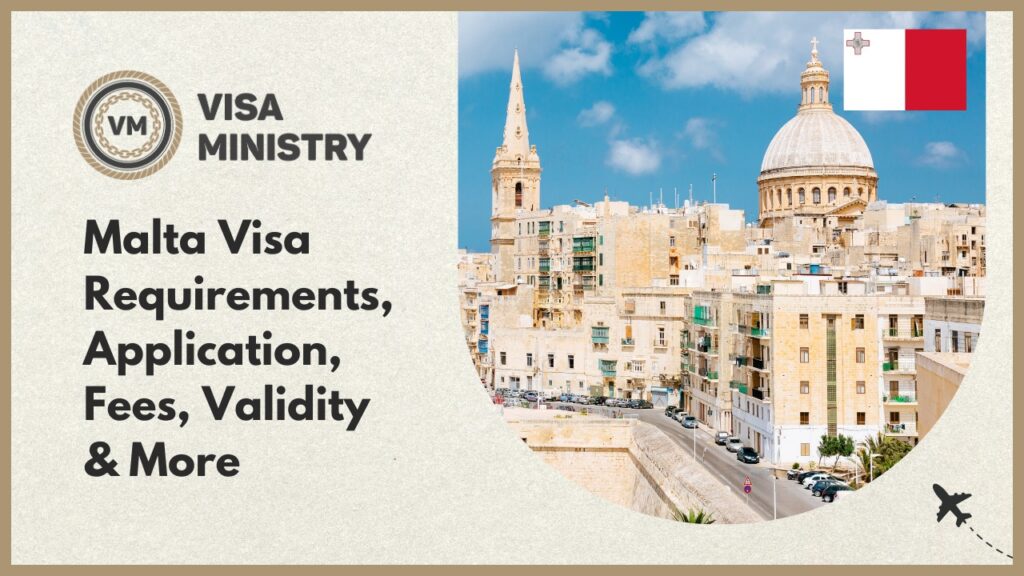
Malta Visa Requirements, Application, Fees, Validity & More
Are you visiting Malta, a lovely Mediterranean archipelago? Understanding Malta visa requirements, application procedure, fees, validity, and more are essential for a smooth and hassle-free visit, whether for pleasure, business, education, or transit. This article covers all you need to know about getting a Malta visa. Malta, a Mediterranean island nation, is known for its rich history, breathtaking architecture, crystal-clear seas, and kind hospitality. Malta has several fascinating attractions, from Valletta, the capital, to Mdina and Marsaxlokk. Most visitors to Malta need a visa, depending on their country, purpose, and stay. For seamless admission, learn the visa requirements. Before applying, applicants must decide on the visa category because each has particular requirements.
With the correct preparation and information, applying for visa may be easy. This guide details the application process, including needed paperwork, submission methods, and processing periods. We’ll also offer advice on avoiding errors and completing your application. Malta visa costs are also important. Knowing the fees for each visa category is crucial. This article covers Malta visa application and other expenses.
Know the validity and term of your Malta visa. Visas specify the length of stay in Malta. To prevent legal issues during your stay, follow your visa’s rules. Your Malta visa may need to be renewed. We will explain the renewal and extension process, including documentation and steps. Start the renewal or extension procedure early to minimize travel disruptions. This tutorial addresses Malta visa questions concisely and accurately. Visa processing timelines, visa-free travel, nationality-specific visa criteria, and family visa applications will be covered.
Types of Malta Visas
When visiting Malta, it’s crucial to know the many types of visas and select the one that meets your needs. Malta’s major visa types:
Tourist Visa:
- For those visiting Malta for leisure, sightseeing, or family.
- Tourist visas allow 90 days in 180 days.
- The applicant might request a single or multiple-entry visa.
Business Visa:
- You require a business visa to visit Malta for conferences, meetings, or contract negotiations.
- The applicant’s needs and circumstances determine the stay and entry limit.
Student Visa:
- Malta requires student visas for higher study.
- This visa lets students study in Malta.
- Applicants may need to show documentation of enrolment in a recognized educational institution and financial assistance for their study.
Work Visa:
- You need a work visa to work in Malta.
- The Department of Employment and Industrial Relations approves work visas based on employment contracts.
- Employment contracts determine visa length.
Transit visa:
- Malta-bound travelers may need a transit visa.
- Malta transit visas enable a 5-day stay.
- Applicants must show onward travel and a valid destination visa.
Visa requirements depend on the applicant’s nationality and circumstances. For particular visa kinds and criteria, visit the Maltese embassy or consulate’s website. Understanding Malta visakinds can help you choose the right one for your visit. To improve your immigration prospects, gather all the required information and submit a full application for each visa category.
Malta Visa Requirements
Meeting Maltese visa criteria is crucial. Most Malta visas include these requirements:
Valid Passport:
- Malta visas require a valid passport.
- The passport should be valid beyond the proposed Malta stay.
- Visa stamps require at least two blank passport pages.
Completed Application Form:
- Fill out the visa application form completely.
- Some visa applications are filed online, while others need a paper form.
- Before applying, verify the details.
Passport-sized Photos:
- You must supply current passport-sized photos that fulfill size, background color, and facial expression standards.
- Check your visa type for the number of photos needed.
Proof of Accommodation:
- Malta may request proof of accommodation.
- Hotel bookings, a letter of invitation from a host, or a leasing agreement for private accommodations are examples.
Travel Itinerary:
- Provide a thorough itinerary of your Malta stay.
- Include airfare, lodging, and excursions or events.
Financial Means:
- You may need to prove you can sustain yourself in Malta.
- Bank statements, sponsorship letters, and income proof can show this.
Health Insurance:
- Travel health insurance should cover emergency medical care, hospitalization, and repatriation.
- Show evidence of health insurance for your Malta stay.
Additional Documentation:
- Work visa candidates may need to present employment contracts or letters from prospective employers, while students may need to provide proof of enrolment.
These are basic principles; various visa classes may have different criteria. For the latest visa requirements, see the Maltese embassy or consulate’s website in your country. A comprehensive, accurate application with all supporting documentation enhances the probability of visa approval. To minimize visa application delays, acquire the necessary papers early and prepare.
Malta Visa Application Process
Malta visa applications are step-by-step. The Malta visa application procedure varies by visa category and embassy or consulate, however the following is a basic overview:
Choose a Visa Type:
- Choose a visa based on your reason for visiting Malta (tourist, business, study, job, etc.).
- Check the Maltese embassy or consulate’s website for visa requirements.
Gather Required Documents:
- Review your visa’s needed paperwork.
- Gather your passport, application form, passport-sized photos, proof of lodging, trip itinerary, financial means paperwork, health insurance, and any other visa-specific criteria.
Complete Application Form:
- Complete the visa application.
- Check all details and information.
- Follow the official visa application webpage guidelines if applying online. The embassy or consulate provides the application form for in-person applications.
Schedule an Appointment:
- Some embassies and consulates demand ahead of appointments.
- Visit the embassy or consulate’s website or call to find out if an appointment is needed and how to make one.
Submit Application:
- Submit your visa application with all relevant papers.
- Attend the embassy or consulate on time if applying in person.
- Follow the online application submission procedures.
Pay the Visa Fees:
- Pay the visa application and any other fees.
- Check the embassy or consulate website for payment methods (cash, credit card, bank transfer) and fees.
- Save the receipt.
Attend the Interview:
- Some visas need an interview.
- Review your application, supporting papers, and travel plans before the interview.
Track the Application:
- Keep the embassy or consulate’s application reference number or receipt.
- Use the online monitoring system or call the embassy or consulate to follow your visa application.
Be Patient:
- Malta visa processing times vary.
- Before visa acceptance, don’t book a non-refundable trip.
Collect the Visa:
- Collect your passport and visa from the embassy or consulate if your visa application is granted.
- Verify your visa information to confirm they match your trip arrangements.
- Consult the embassy or consulate for visa denial alternatives.
The preceding stages are an overview of the Malta visa application procedure. Country-specific regulations and procedures apply. For the latest visa application information, visit the Maltese embassy or consulate on your country’s website.
Malta Visa Fees
Malta visas have costs. Visa fees vary by nation and kind. Key Malta visa fee considerations:
Application Fee:
- Most Malta visa applications demand a charge.
- Visa applications are non-refundable.
- Visa category and embassy/consulate determine the price.
Additional Charges:
- Visa application fees may vary depending on your circumstances or visa type.
- These fees may include expedited processing, document verification, courier services, and other options.
Fee Payment Methods:
- Malta visa fee payment options differ per embassy or consulate.
- Cash, credit card, bank transfer, and internet payment options are common.
- Check the embassy or consulate’s payment requirements before applying.
Fee Verification:
- Verify visa fees before applying because they might vary.
- Visit the Maltese embassy or consulate’s website for visa cost information.
- For fee structure questions, contact the embassy or consulate.
Currency Conversion:
- You may need to convert the visa costs to your native currency to pay them.
- Consider currency rates and transaction costs while paying.
Proof of Payment:
- After paying visa costs, retain proof.
- Keep the payment receipt or any embassy/consulate documents as proof of fee paid.
- This evidence may be needed to collect your passport with the visa.
Visa fees fluctuate, so check the official website of the Maltese embassy or consulate in your country for the latest information on your visa type’s fees. Following the fee criteria and paying on time will aid your Malta visa application.
Also Read: Family Travel on a Budget: How to Make the Most of Your Vacation Savings
Malta Visa Validity and Duration
Understand your Malta visa’s validity and term. The duration of stay is how long you can stay in Malta, whereas the validity period is how long you can enter. Malta visa validity and length considerations:
Visa Validity:
- The visa validity determines your Malta entry period.
- Visa validity is usually measured from visa issues.
- Check your visa before visiting Malta. Visas expire.
Duration of Stay:
- The maximum number of days or months you can stay in Malta after entering.
- Visa type and terms influence stay length.
- Avoid fines and possible visa issues by adhering to your visa’s stay limit.

Several Entries:
- Malta visas may enable several entries or just one.
- As long as you stay within the visa’s term, you can enter and depart Malta many times.
Visa Extensions and Renewals:
- You may require a visa extension or renewal to remain longer than your visa allows.
- Before your visa expires, apply for an extension.
- Visa types may demand different fees and papers for extension or renewal.
Overstaying:
- Follow your visa’s stay limit.
- Overstaying can lead to fines, visa issues, or a prohibition on returning to Malta.
- Before your visa expires, request for an extended stay visa or extension.
Visa-Free Travel:
- Certain nations can travel to Malta visa-free for short periods.
- If your nationality enables visa-free travel, follow the rules for maximum stay periods.
Always check your Malta visa for validity, length, and other limitations. For assistance, contact the Maltese embassy or consulate in your country. Understanding and following the visa validity and duration criteria can make your Malta stay easier.
In conclusion, visitors visiting the lovely Mediterranean island country must comprehend Malta visa criteria, application procedure, fees, and validity. You can assure a successful visa application by familiarizing yourself with these key points. Malta offers tourist, business, student, employment, and transit visas. Based on your visit, pick the right visa type.
We also discussed the requirements, including a valid passport, completed application form, passport-sized pictures, proof of lodging, trip itinerary, financial means paperwork, and health insurance. To improve visa acceptance odds, submit a comprehensive and correct application with all required documentation.
We also reviewed the Malta visa application procedure, highlighting the necessity of arranging appointments, submitting the application and accompanying papers, paying the visa costs, and attending interviews. The Maltese embassy or consulate’s instructions and visa processing time must be followed.
We also covered Malta visa fees, including application and supplementary expenses. Check the embassy or consulate’s fees and payment methods. Finally, we stressed the necessity of recognizing the validity and term of a Malta visa, adhering to the authorized stay, and avoiding overstaying to avoid penalties and issues. For extended stays, we discussed visa extensions or renewals. By being well-informed and following the visa criteria and application procedures, you may maximize your chances of getting a Malta visa and enjoying a fantastic Mediterranean vacation. Always check the Maltese embassy or consulate’s website for the latest visa requirements and processes.
Frequently Asked Questions (FAQS):
1. does malta need a visa.
Depends on nationality. For short stays, citizens of these countries can enter Malta visa-free. Find out if you need a visa at your local Maltese embassy or consulate.
2. Malta visa processing time?
Malta visa processing times vary. Depending on the visa type and embassy or consulate, processing periods might take a few days to several weeks, so apply early.
3. Can I get a Malta visa online?
Some Malta visa applications can be submitted online. The online application procedure and qualifying requirements are on the Maltese embassy or consulate website in your country.
4. Can I extend my Malta visa?
If you need to remain longer in Malta, you can request a visa extension. Submit your visa extension application early.
5. Are visa expenses refundable if my application is denied?
Visa costs are usually non-refundable. To improve your visa prospects, complete all standards and offer reliable information.
6. Do Malta visas need travel insurance?
Travel health insurance that covers medical expenditures in Malta is suggested but not required. It offers financial security.
7. Can I work in Malta on a tourist visa?
No, tourists cannot work in Malta. Work requires a work visa or authorization.
8. Does a Malta visa allow Schengen travel?
A valid Malta visa permits travel inside the Schengen Area, which includes 26 European countries. Malta visas allow Schengen travel.
9. Can I get a Malta visa while abroad?
If you hold a residence permit or long-term visa for another country, you can apply for a Malta visa. Contact your local Maltese embassy or consulate for instructions.
10. Do children require a Malta visa?
Malta requires a visa for minors. They need a separate passport and visa. Contact the Maltese embassy or consulate for age restrictions.
References:
schengenvisainfo
Leave a Comment Cancel Reply
Your email address will not be published. Required fields are marked *
Save my name, email, and website in this browser for the next time I comment.
Financial documents like proof of funds available in your bank account from last 3 months and taxes paid by you from last 2 years. (if you have not filed taxes, then we will file on your behalf )
Travel Insurance (Required for the risk coverage of the traveller: we prepare this)
Flight Reservation Copy or PNR (Required to validate your means of arrival in the country of application: we prepare this)
Hotel/Stay Reservation Proofs (Required to validate your stay: we prepare this)
Travel Itinerary (Required to check your day wise plan in this country of application: we prepare this)
Your Letter of Purpose Explaining Reasons of Travels . (It is required for understanding of your purpose of application: we prepare this letter)
You can submit if you own any bank deposits or real estate like house, land or any property . (it will credit your financial profile and will help your visa success: we will get your property/land valued by registered and government approved valuators)
Proof of employment like registration papers of your business/work or sanctioned leave letter from your employer. (if you have not registered your work/business/company then we will get it done)
WhatsApp us

I accept the Terms & Conditions
Don't know what to do?
Get Free Counselling
Why apply for the Malta Visit Visa?
- Malta is famous for its wonderful coastline.
- Malta is the most concentrated historic area in the world.
- It is famous for its architectural sites and, therefore, has popular film locations.
- It is an Ideal holiday destination because of the colourful village festivals.
- Camino Island and the Blue Lagoon are the best photogenic landscapes.
Types of Malta Visit Visa
Malta schengen visa. .
If you are from a country that is not liable to visa requirements, then you require a Schengen visa for small trips that will be less than 90 days or up to 90 days. With a Schengen visa, you can visit other Schengen countries as well.
Malta Transit Visa.
The Malta visa is given to travellers who must transit in Malta while travelling to their final destination. If you already have a Schengen visa or if you have a residence permit from another Schengen country, then you don’t need a transit visa. If you are a diplomatic passport holder or EU/EEA/Swiss citizen, then you are free from transit visa requirements.
Benefits of Malta Visit Visa
- This offers flexible travel advantages because it has Multiple Entry visas.
- Belgium is part of the Schengen area, and therefore, you can travel to Malta if you have a Schengen Visa.
- This Malta visa will let the holder enter and exit the Schengen area numerous times within its time period of up to 90 days.
Eligibility for Malta Visit Visa
- Sufficient funds are required to cover the Malta trip.
- No criminal records
- Medical records are very necessary.
- Valid documents
- Trip itinerary
- Travel Insurance
- Hotel booking confirmation
Malta Visit Visa Requirements
- Belgium visa application form
- Two photographs that are identical
- Valid passport
- Previous visas Xerox (if any)
- Language Preference Form
- Cover letter
- Flight Itinerary
- Complete Travel Insurance
- Accommodation Proof
- Proof of sufficient bank balance to stay in Malta
Steps to apply for a Malta Visit Visa in 2023
- Step 1: Fill in your visa application form
- Step 2: Submit all the documents which are necessary.
- Step 3: Find out where you need to apply for Malta.
- Step 4: Make an appointment
- Step 5: Attend visa Interview
- Step 6: If eligibility criteria are met, you will get a visit visa.
Malta Visit Visa Processing time
The waiting time for a Malta visa will take at least 10 days to be processed; it completely depends on the documents you submit. Sometimes, in certain areas, the processing time will be 30 days and, also, in extreme cases, it can be more than 60 days.
Malta Visit Visa Cost
How y-axis can help you.
The Y-Axis team has been the best solution to assist you with your Malta visit visa.
- Evaluate which visa type to apply under
- Gather and prepare all the documentation.
- Filling out forms for you
- Will review all your documents
- Assist in applying for a visa
Sign up for a free consultation
Looking for inspiration.
Explore What Global Indians have to say about Y-axis
Frequently Asked Questions
I am planning on visiting malta 5 months from today. can i apply for my visit visa for malta now, do i have to give my biometrics each time that i travel to malta, can i extend my malta schengen visa, what are the additional requirements specific to malta tourist schengen visa, what is the validity of an invitation letter, i had got a visa on the invitation letter. my visa validity has expired. can i use the invitation letter again for applying for another visit visa, do children have to give biometrics too.
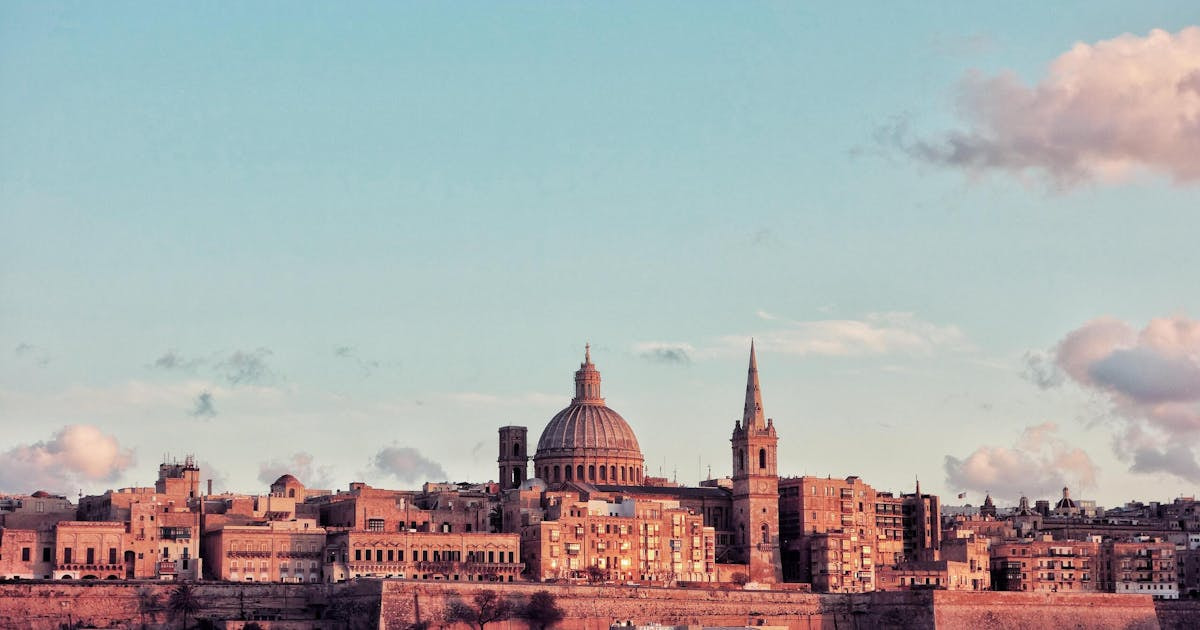
Malta Visa for Indians: Requirement, Fees & How to Apply
Last Updated : 01 May 2024
Last Updated : 01 May 2024 at
30-Second Summary
Indian citizens planning to visit Malta require a tourist visa. The Malta Schengen visa permits Indians to engage in tourism within a specified timeframe.
The application form is available online.
You must personally submit your application at the Visa Application Centre (VAC).
Upon approval, you can collect the visa from the application centre.
It is recommended to apply 5-6 weeks before your intended travel date.
Though securing a visa appointment for Malta can be time-consuming, Atlys simplifies and accelerates the appointment process.
Important Information
— Malta Visa Type
— Malta Visa Fees
— Visa Validity
— Malta Processing Time
— Fastest way to apply for the Malta visa
Malta, being a member of the Schengen Area , allows seamless travel within the 26 European countries in the zone due to removing internal border controls. Indian citizens visiting Malta need a valid visa before travelling, specifically the Malta Schengen visa . The Schengen short-term visa is used for tourism purposes, allowing a stay of 90 days.
It's important to note that this visa does not grant the right to work in Malta. For employment, a separate Malta work permit visa is required.
Documents Required for Malta Visa For Indian Citizens
Ensure you have all the documents needed for the Malta Visa for Indians, which will improve your eligibility. These documents are as follows:
Application Form: A completed Malta Visa Application form can be completed online, downloaded, printed, and signed.
Passport/Travel Document: Must be valid for at least 3 months after the intended stay. It should have been issued within the last 10 years and not be valid for more than 10 years. You must have at least 3 blank pages.
Passport Photos: A passport photo of yourself; ensure the photo meets the visa photo requirements .
Overseas Travel Medical Insurance: Valid for all Schengen countries. Coverage should be for at least 30,000 Euros or equivalent. The policy must clearly state the period of validity, covering the entire duration of the trip, including the arrival and departure dates. Insurance can only be purchased from one of India's 16 recognised Schengen insurance companies.
Flight Reservations: Provide proof of return or round-trip ticket . If travelling to multiple Schengen states, provide proof of intra-Schengen flight reservation, train itinerary, or car rental.
Certificate of Organized Group Trip: If applicable, provide a certificate from the travel agency confirming the booking of an organised group trip.
Proof of Financial Means: You can provide proof of your finances through an original personal bank statement for the last three months, stamped and signed by the bank. Indian income tax return acknowledgement for the last two assessment years.
Proof of Accommodation: Show where you'll be staying with proof like a rental agreement, hotel reservation , or details of private accommodation. Make sure it covers your whole stay and includes all the Schengen countries you intend to visit.
Employment Documents: Payslips for the last three months. Employment contract. Employer's statement of approval for holidays. Certificate of company registration, including the goods and services tax (GST) registration number (for Indian companies).
Covering Letter: Write a cover letter explaining why you're travelling, what you plan to do, and when you'll return. The cover letter essentially confirms the purpose of your trip.
Adhaar Card/National Identity Card: along with a photocopy.
Extra Documentation: Depending on why you're visiting, you might need additional documents like a No Objection letter from your employer allowing your trip, proof that you're enrolled in school, or a marriage certificate for family visits.
How To Apply For A Malta Tourist Visa Through Atlys?
With Atlys for your Malta visa, we offer personalised assistance throughout each stage and secure the earliest available appointment for you. Typically, you can expect an appointment within 15 days. Discover a simplified way to apply for your visa with Atlys. Follow these steps:
Start the Process: Start by providing the necessary details through the Atlys app for your Malta visa application.
Engage with Our Experts: Following your application, one of our concierges will guide you through the process.
Evaluation of Your Travel Plans: Our professionals will review your travel plans, ensuring your passport, accommodation, photo, and other details match correctly with your Malta visa application.
Swift Visa Appointment: Atlys will expedite the process to secure the earliest available visa appointment for you.
Visa Preparation Checklist: You will receive a comprehensive checklist to follow for a smoother visa appointment.
Attend Your Appointment: On the appointed day, submit the required documents and attend an interview if necessary.
Monitor Your Visa Status: After your visa appointment, Atlys will inform you once your Malta visa is approved.
Benefits of Atlys's Schengen Visa Service
Personalised Assistance: Direct communication with visa professionals for expert guidance.
Reliable Guidance: Experienced team assistance for travel plans and document preparation.
Guaranteed Appointment: Atlys ensures a secure visa appointment.
Timely Updates: Stay informed with regular updates on your Schengen visa application status.
How to Apply for a Malta Visa from India Through Government Channels
Here are the steps to apply for a tourist visa to Malta for Indians:
Check the Requirements: Ensure you meet all the requirements to be eligible for the visa. You must be an Indian citizen intending to visit Malta for tourism purposes. Ensure you have the means to pay the visa fees and have travel insurance.
Fill in the Visa Application Form: Obtain the official visa application form . Complete the form accurately and attach the required documents.
Book a Visa Appointment: Schedule a Malta visa appointment at a local visa centre. You'll have to provide biometrics (fingerprinting) and have your photo taken.
Visit a Visa Application Centre: Attend your scheduled Malta visa appointment. Arrive on time and ensure you are presentable. You'll have to provide your biometrics and have your photo taken. Be prepared for a short interview.
Pay the required visa fees: Once you have applied, you must pay your visa application fee. You must pay the visa fee at the Visa Application Centre using the approved method (Cash/card).
Track your application: Once a decision has been made on your visa application and returned to the Visa Application Centre, you will receive an email or SMS notification. Additionally, you can easily track the status of your visa application online.
Collect Your Visa: Once approved, you will be notified. Collect your Malta Visit Visa from your local visa centre. Bring identification and the receipt from your previous visit.
Tips when applying through government channels
Ensure the accuracy of the information you submit, as errors on the application form may cause delays in processing your Malta visa.
Enhance the visa processing by including additional supporting documents like a travel itinerary.
Arrive 15 minutes early for your appointment to account for potential delays.
Prepare for the visa interview by familiarising yourself with commonly asked questions and answers.
Also, familiarise yourself with how the biometric process will work.
Overview Of The Malta Visa For Indian Travellers
How can i prepare for the visa appointment.
Preparing for your visa appointment does not have to pose a tedious task. It is important to arrive early. In fact, it is recommended that you arrive at the visa centre at least 15 minutes before the scheduled start time.
Secondly, ensure all the required documents are with you on the day of the appointment and that you bring them with you. These documents include:
A copy of your application form;
A valid passport;
Both copies and originals of any other supporting or additional documents.
What Are The Malta Visa Fees For Indians?
The visa fees for Indian citizens applying for a Malta Visa, here's a breakdown of the fees:
For adults: € 80 (approximately ₹ 7,185).
For children aged 6 to 12 years: € 40 (approximately ₹ 3,592).
For children below 6 years: Free.
What Is The Malta Visa Processing Time In India?
The Malta tourist visa processing time is 3 weeks . Furthermore, please note that the days are counted from the day the application reaches the High Commission.
Some cases that can cause a delayed Malta Visit Visa processing time :
A sudden demand for visas
Incorrect information or documents
How Long Can I Stay With a Malta Visa From India?
The Malta Tourist Visa for Indians allows a stay of 90 days and is valid for a period of 180 days .
This means that when you arrive in Malta or any other Schengen member state, you can stay for a maximum of 90 days within a 180-day period.
The purpose of the visa is to allow citizens from foreign countries to enter Malta with the intent of leisure, tourism, and business purposes.
Malta Visa Rules
Ensure Your Passport Validity: Your passport should remain valid for at least 3 months beyond your planned departure from Malta.
Provide Schengen Biometrics if Required: If you haven't submitted your Schengen biometrics in the last 59 months, it is mandatory when applying for a Malta visa.
Use Visa Application Centre: Exclusively apply for a Malta visa through a designated visa application centre.
Complete Online Application: Fill out the online application form for the Malta visa as part of the application process.
Timely Application Submission: Apply for your Malta visa 3-4 weeks before your intended travel date to allow ample time for visa processing.
On your marks, get set, and apply! You now know everything about travelling to Malta and what requirements, documents, and other essential items you need as an Indian citizen to apply for the Malta Visa for Indians. You’re ready for international travel and to set foot on Maltese soil!
Government Sources
Atlys is committed to offering precise information directly obtained from the official government website. We depend on reliable government sources to provide you with the latest and most trustworthy guidelines for Malta.
Malta Visa Application Centre
Please double-check essential information on the government website to ensure accuracy, as updates may occur without prior notice.
We’re here to answer all your questions
Yes, Indian citizens need a visa to travel to Malta. For tourism purposes, travellers may require a tourist visa, also referred to as a Malta Schengen visa. Indian nationals are required to obtain a visa before entering Malta for tourism, business, or any other purpose.
Here are the types of Malta visas for Indians you can also apply for depending on the purpose of your trip.
Tourist Visa: This visa allows individuals to visit Malta for tourism, sightseeing, and leisure purposes. The tourist visa for Malta is usually granted for a short duration, typically up to 90 days.
Business Visa: The business visa is designed for individuals who travel to Malta for business-related activities, such as attending meetings, conferences, or negotiating contracts. It is important to provide documentation supporting the purpose of the visit.
Student Visa: If you plan to pursue your education in Malta, you need a student visa. This visa allows you to study at recognised educational institutions in Malta for a specific duration. You may be required to provide proof of enrollment and financial means to support your studies.
Work Visa: Individuals seeking employment opportunities in Malta need to obtain a work visa for Malta . A Maltese employer usually sponsors this visa, and the applicant must meet specific criteria, such as possessing the necessary qualifications and skills for the job.
Extending the Maltese visitor permit under any normal conditions is not possible. However, you may be granted an extension in certain extreme circumstances, such as a Force Majeure or other humanitarian reasons. If so, you must apply before the expiry.
Typically, you must apply for the Malta Visa for Indians three months before your trip (bear in mind the processing time of the visa application process). Sometimes, your visa processing time might be delayed, which could cause you to miss your trip. As such, starting your Malta Tourist visa is best soon.
Yes. Booking an appointment happens after you have completed your application form for the tourist visa for Malta. Appointments occur at Visa Applications Centers. However, this can sometimes be difficult as appointment slots are only sometimes available. In addition, your biometrics, such as fingerprints, will be captured at a visa appointment.
Currently, visa arrival for Indians in Malta is not available. Instead, Indians can apply for a Malta Visit Visa from India.
After your plane lands at Malta International Airport, you must go through the foreign arrival gate first and check in at Immigration. Stand in the correct line and follow arrival protocols to avoid any hassles or issues. Next, present your Malta Visa from India, passport, and any other valid documents; authorities at the airport will ask you a few questions regarding your trip. Be sure to answer these questions calmly and confidently and be honest. Then, you are finally free to enter the country as another one of the Indians in Malta.
Once you arrive at your visa appointment, you will need to submit your documents and attend a brief in-person interview, where you will be asked questions about your plans to travel. In addition, your biometric information, such as fingerprints and a clear digital photograph of you, will be taken and submitted.
Despite all the work and consideration that goes into visa applications, they get rejected sometimes. If your Malta Visa from India is ever denied, you can reapply, although you will be required to pay the visa fees again, as with each application. An appeal can also be written and sent to the Malta Immigration Appeals Board.
No, you cannot work in Malta with a tourist visa. A tourist visa is specifically designed for individuals visiting the country for tourism purposes, and it does not permit employment.
Size: Use the standard passport size, typically 35mm x 45mm.
Background: Opt for a plain, light-coloured background, preferably white, without patterns or shadows.
Expression: Maintain a neutral facial expression, keep both eyes open, and face the camera directly without smiling.
Head Position: Ensure the head is centered, fully visible, and not tilted or rotated.
Attire: Wear everyday attire that does not cover the face or head except for religious reasons. Avoid accessories like hats or headbands.
Glasses: If you wear eyeglasses, make sure they don't obstruct your eyes, with no glare or reflections on the lenses.
Photo Quality: Ensure the photograph is clear, sharp, and of high quality, with appropriate brightness and contrast and natural skin tones.
Visas in Under a Week
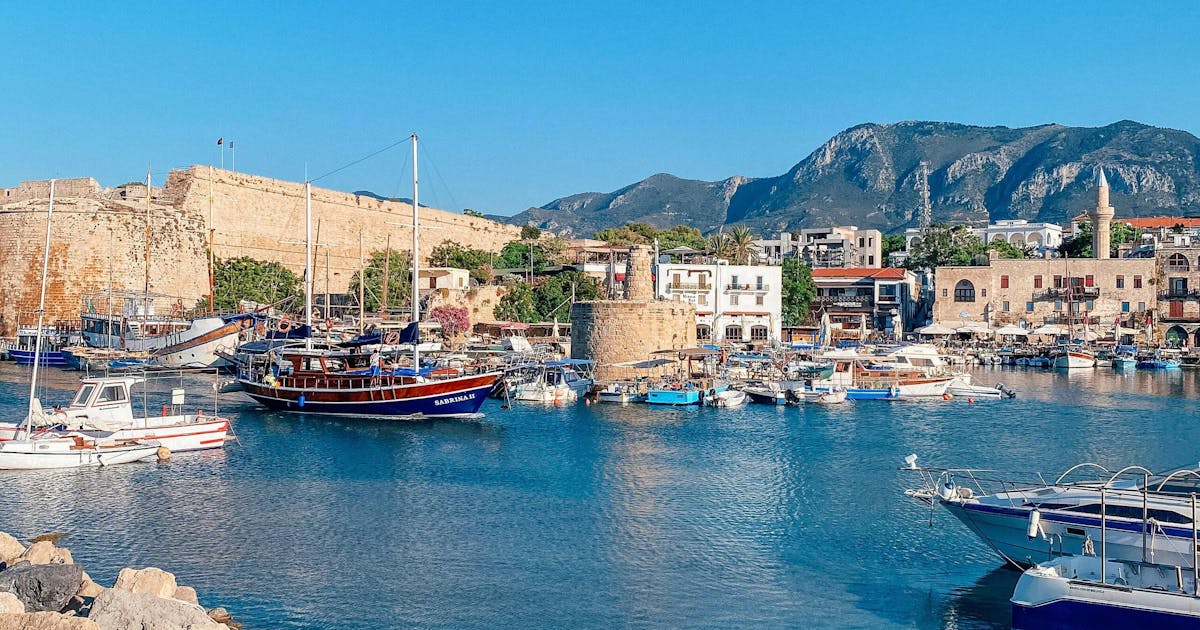
Cyprus Visa for Indians: Requirement, Fees & How to Apply
Cyprus visa for Indians
Learn how to secure a Cyprus visa for Indians, from booking a Schengen visa appointment, paying the fees, to in-person submission of the required documents.
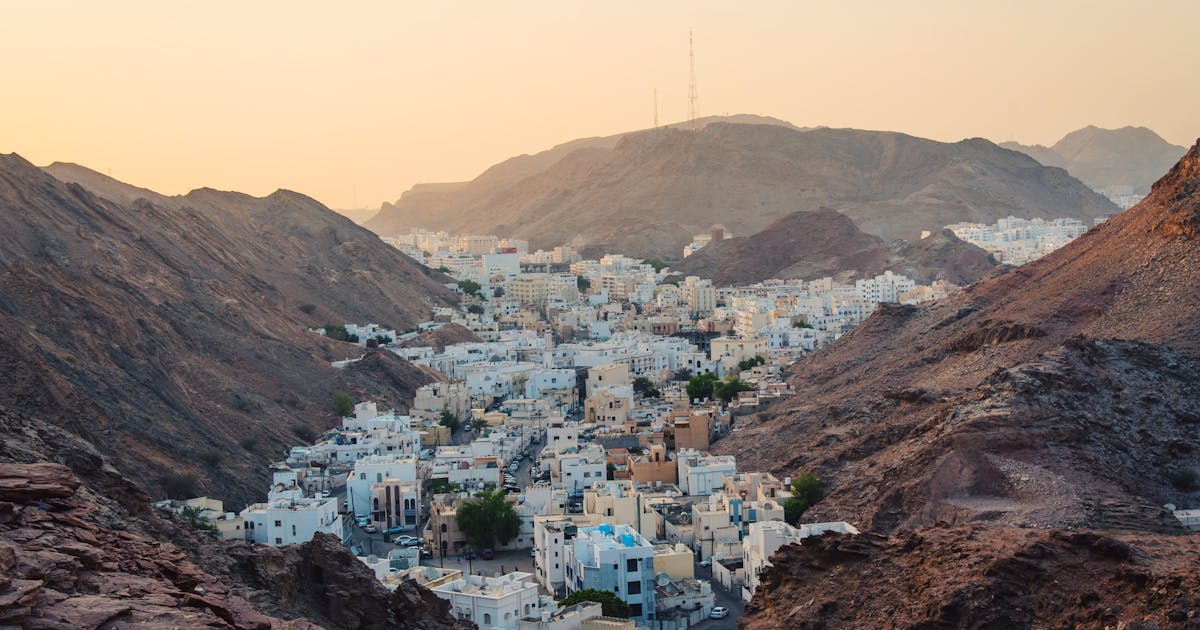
Oman Visa for Indians: Online Visa Requirements & Fees
Oman Visa for Indians
Check out our guide on the Oman visa for Indians and learn about the application process, fees, validity and more

How Indians Can Apply For A Dubai Visa
In this post, you will find how Indians can apply for their Dubai Visa. We will also cover different ways to apply for your Dubai Visa and the required documents.

Indonesia Visa for Indians: Online Visa Requirements & Fees
Indonesia E-Visa for Indians
Learn about the visa requirements, fees, processing time, and visa validity. Follow our step-by-step guide to apply for an Indonesia visa for Indians.
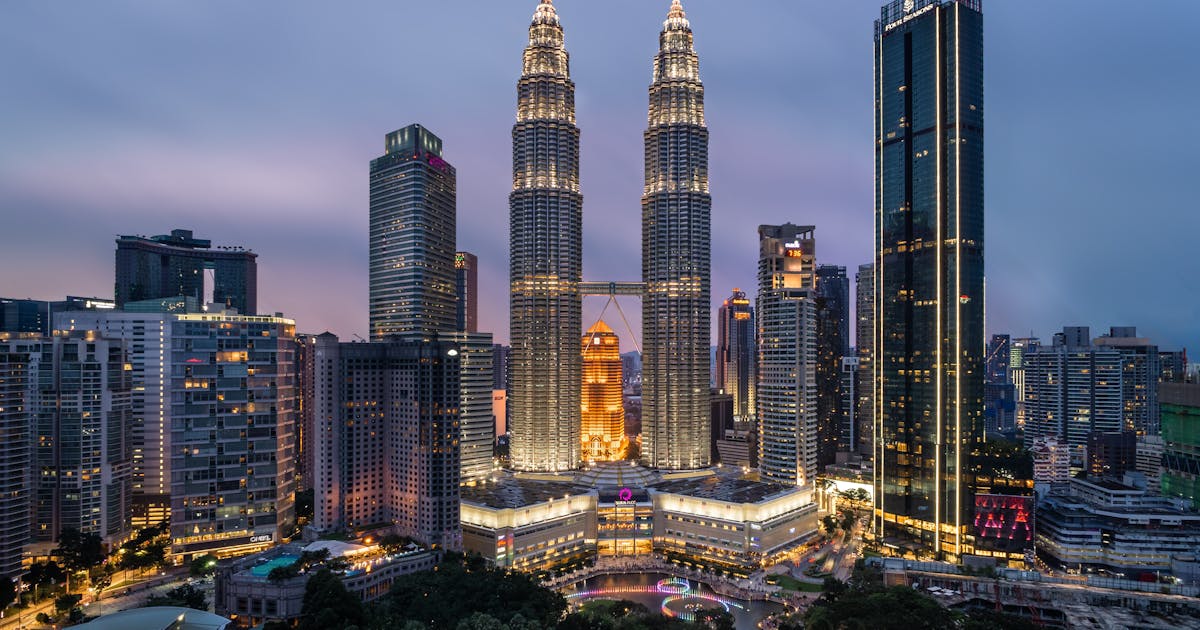
Malaysia Visa for Indians - New Visa Changes with MDAC
Malaysia visa for Indians
Learn the new policy updates for the Malaysia visa for Indians. Our detailed guide includes the new visa regulations, requirements, and related fees.

Myanmar E-Visa for Indians: Online Visa Requirements & Fees
Myanmar Visa For Indians
Know more about the essential steps to obtain Myanmar visa for Indians. Includes up-to-date info on requirements, fees, and application tips for Indian travellers.
Instant Visas
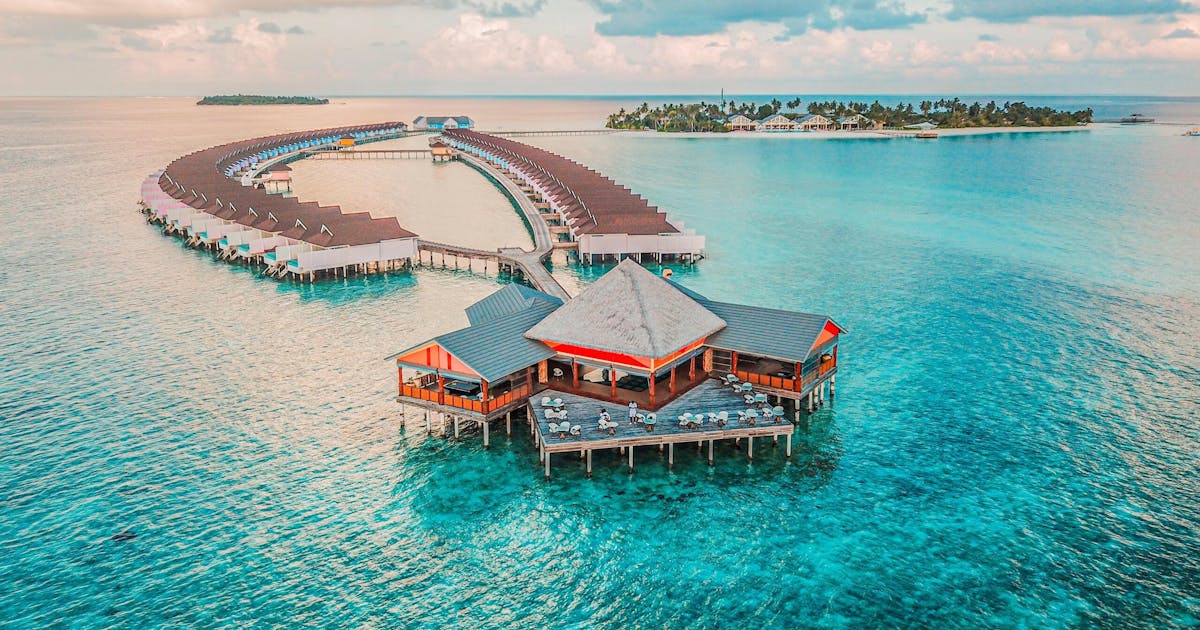
Maldives Visa for Indians: Visa on Arrival & Requirements
Maldives Visa for Indians
Plan your Maldives trip with ease. Find out everything about the Maldives visa for Indians, from the required documents to the on arrival application process.
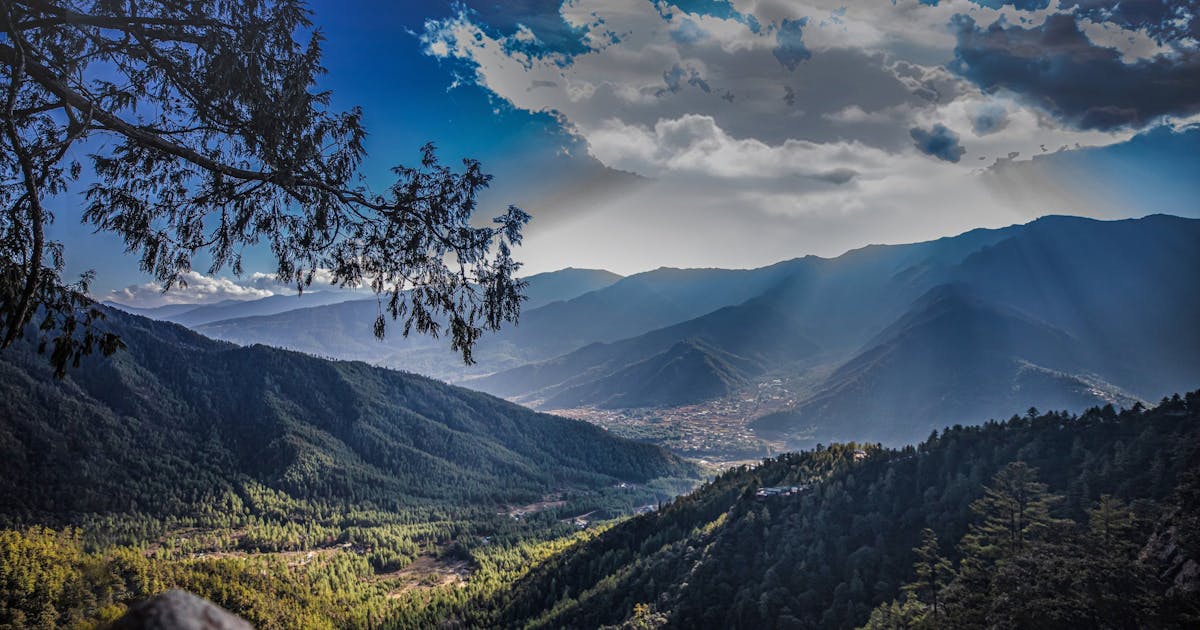
Bhutan Visa for Indians: Visa Free Entry & Travel Requirements
Bhutan Visa for Indians
Explore Bhutan without the visa hassle: A guide for Indians on visa-free entry, the Bhutan entry permit, and what you need to know for a smooth travel experience.
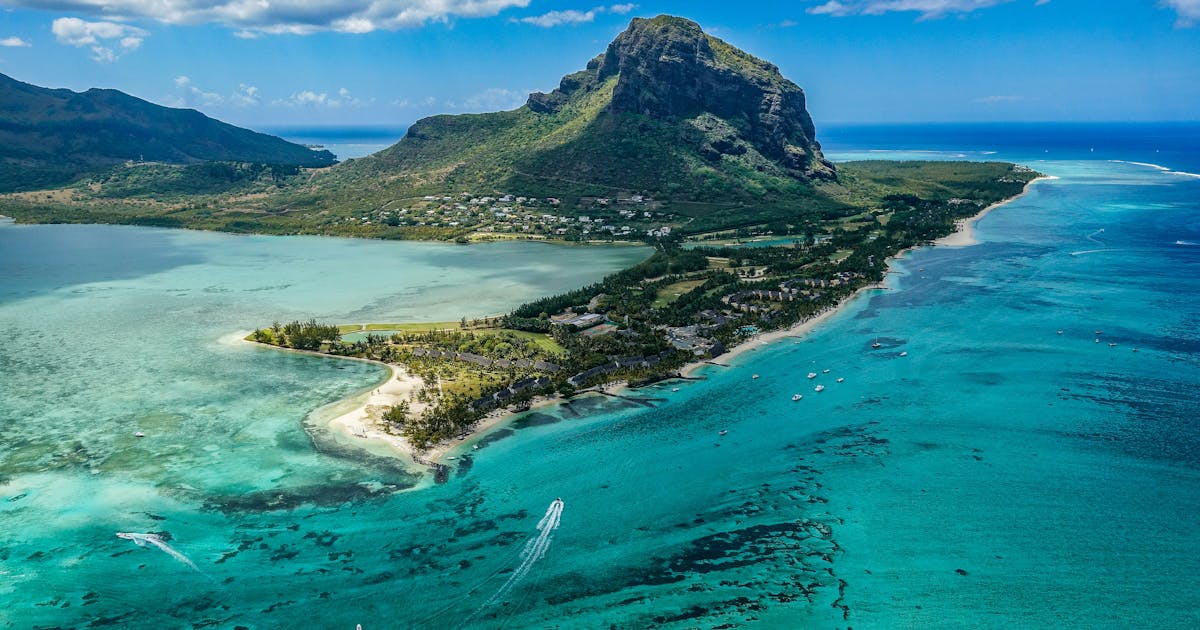
Mauritius Visa for Indians: Visa on Arrival & Requirements
Mauritius Visa For Indians
Simplify your Mauritius journey with our ultimate guide on the Mauritius visa for Indians. Learn about the visa requirements, visa-on-arrival process, fees, and more.

Nepal Visa for Indians: Visa Free Entry & Travel Requirements
Nepal Visa For Indians
Explore Nepal without the visa hassle as an Indian traveler by understanding the visa-free entry and documents required to enter Nepal from India.
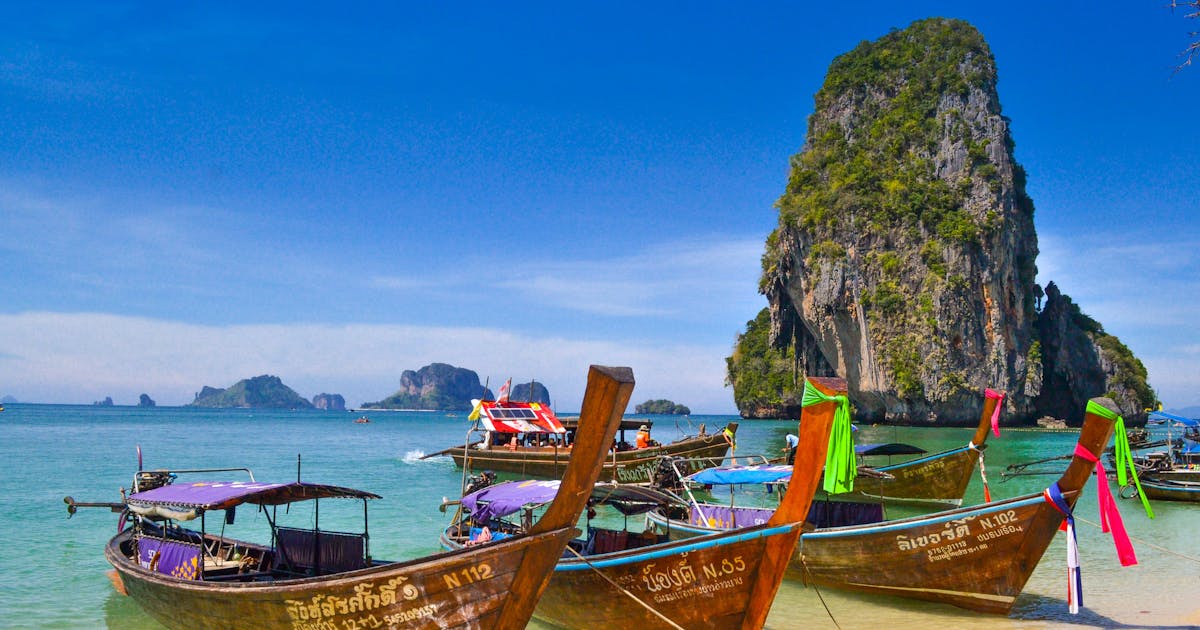
Thailand E-Visa on Arrival for Indians: Fee, Requirements & Process
Thailand E-Visa on Arrival
Get your Thailand visa for Indian travellers with ease. Learn about processing times, required documents, fees, validity, and tips for hassle-free entry in Thailand.
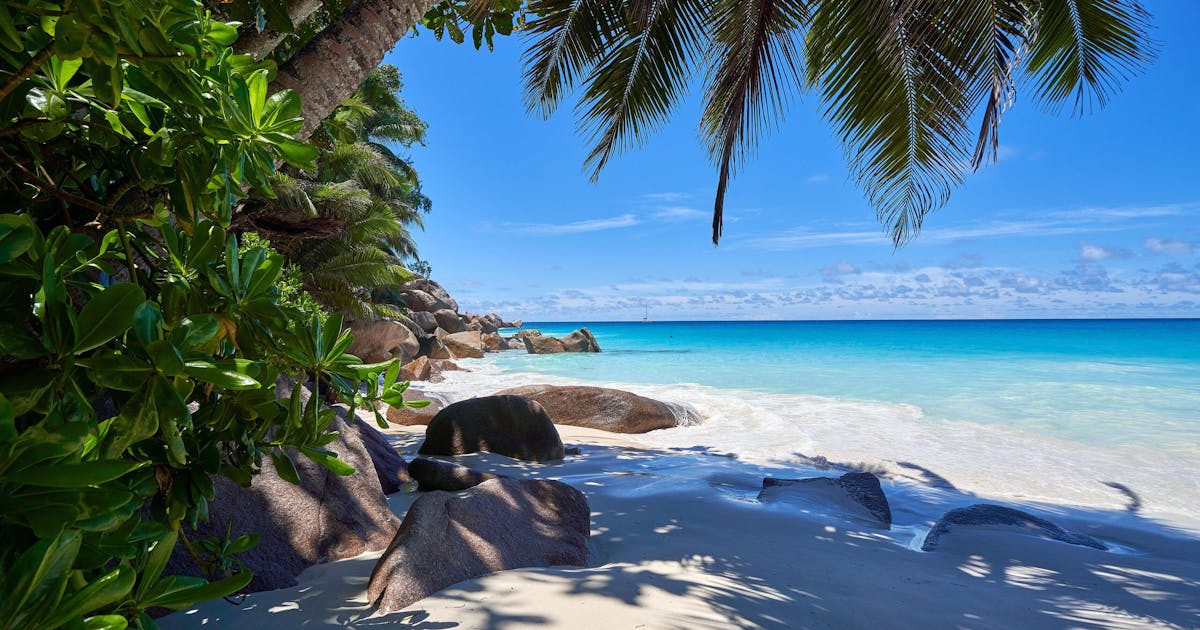
Seychelles Visa for Indians: eTA Requirements & Application
Seychelles Visa For Indians
Your complete guide to Seychelles visa for Indians: Learn about requirements, costs, and travel tips for an unforgettable experience.
Visa Guaranteed on

How to Apply for a Golden Visa: A Step-by-Step Guide
Reviewed by Katie Miller Fact checked by Vikki Velasquez
Golden visas are a type of visa available in approximately 28 countries to wealthy individuals who are able to make significant investments , often in real estate , in a host country. In return, they get residency, a path to citizenship, unrestricted travel to numerous other countries, business and education opportunities, and other benefits.
In addition to their investment, golden visa holders must undergo a complex application process that often requires professional guidance. Learn about that process here and which countries are the most popular for those planning to obtain golden visa status.
Key Takeaways
- Golden visas are available to wealthy individuals wishing to reside in one or more of 28 countries worldwide.
- A golden visa requires a significant investment in the host country, typically in real estate, and is offered to promote economic growth.
- Besides the investment, the golden visa application process is time-consuming, requiring vetting, submitting paperwork, and approval.
- Once obtained, a golden visa allows residency in the host country and unrestricted travel to many other countries.
- A golden visa often leads to citizenship or the ability to fast-track a citizenship application.
What Is a Golden Visa?
A golden visa is a type of residency-by-investment program in approximately 28 countries worldwide. Instead of merely traveling abroad, a golden visa allows foreign investors to obtain a temporary or permanent residency permit in exchange for a significant investment in the country. The term “golden” refers to the high value of the investment required.
A golden visa’s specific requirements and benefits vary by country, but they are often used to attract foreign investment and promote economic growth.
Countries Offering Golden Visa Programs
About 28 countries offer golden visa programs, including Portugal, Malta, Greece, and Italy.
Eligibility and investment requirements vary by country, as do benefits. Here are the main guidelines for six popular golden visa programs.
Portugal’s golden visa program allows qualified individuals and their families to live, work, and study in Portugal. To be eligible, you must:
- Be at least 18 years old
- Be a non-European Union (EU), non-Swiss, and non-European Economic Area (EEA) national
- Have no criminal record in your home country or Portugal
- Make a significant investment of €250,000 or more that benefits the Portuguese economy
- Invest in investment funds, create a company, or create jobs
- Own the money you seek to invest
- Commit to maintaining the investment for at least five years
As of late 2023, Portugal no longer accepted real estate as a qualifying investment for the golden visa program. However, the private equity and venture capital fund investment method will continue.
Benefits of the Portugal golden visa include:
- Fast processing
- Tax benefits
- A minimal residency requirement
- Affordable investments in rental properties
- The ability to visit 26 countries in the Schengen Area without a visa
- More legitimacy when applying for visas in other countries
- The ability to live, work, and study in Portugal
- The ability to apply for citizenship or permanent residency in Portugal after five years
The Malta golden visa program allows high-income individuals to receive a Maltese passport within one to three years. To be eligible, you must:
- Be at least 18 years of age
- Be a non-EU citizen
- Have no criminal record and no family members with criminal records in your application
- Agree to support family members who are included in your application
- Make a substantial investment in Malta
- Rent or buy property in Malta
- Have health insurance coverage
- Have assets or capital of at least €500,000 of which €150,000 is in financial assets
- Have a clean (noncriminal) source of funds
Benefits of the Malta golden visa include:
- Visa-free access to all Schengen countries for 90 out of 180 days
- The right to live, settle, and stay in Malta indefinitely
- Access to Malta’s high-quality healthcare system
- Access to Europe’s outstanding education system
- A highly advantageous taxation system
The residency requirement for citizenship is based on your investment. Here are the details:
- If you invest at least €750,000, you can get a Malta passport after one year.
- If you invest €600,000, you can get a Malta passport after three years.
With Malta citizenship:
- You and your family can live permanently in Malta or anywhere else in the EU.
- You and your family can work and study in Malta or anywhere in the EU.
- You can travel visa-free or obtain a visa on arrival to over 180 countries worldwide.
- Everyone who is granted Malta citizenship will automatically pass on citizenship to any descendants.
- You can access the social, educational, and health benefits of Malta.
The Greece golden visa is a residence-by-investment program that allows non-EU citizens to obtain a five-year residence permit in Greece. The program is open to all nationalities and has no minimum-stay requirement.
Changes to the Golden Visa Program are expected to take effect in 2024, creating two minimum real estate investment tiers, depending on geographic zones.
- Tier 1 | 800,000 EUR: Real estate investment in the areas of Attica, Thessaloniki, Mykonos, Santorini, and the islands, which have a population of more than 3,100.
- Tier 2 | 400,000 EUR: Real estate investment in all other regions of Greece.
To qualify for the Greece golden visa, you must:
- Purchase real estate property for a minimum of €400,000
- Purchase real estate property for a minimum of €800,000 in these selected areas: Attica Region (including Athens), Mykonos, Santorini, and Thessaloniki
- Invest a minimum of €400,000 in government bonds or capital shares
- Deposit a minimum of €400,000 in a Greek bank account
- Make an investment of at least €800,000 toward government or corporate bonds
The visa is valid for five years and can be renewed every five years.
Benefits of the Greece golden visa include:
- No residency requirement
- Visa-free travel
- Access to local healthcare and education
- Eligibility for your entire family
- Citizenship option
- Permanent residency in Greece
- Access to the wider EU
- A pathway to a valuable second passport
- All the benefits that a citizen would have
Cyprus has canceled its golden visa residency-by-investment program. Below are the details of the old program, which is no longer available.
The Cyprus golden visa was a residency-by-investment program that allowed non-EU citizens to obtain permanent residence and eventually citizenship in Cyprus. The program was one of the fastest and simplest investor visa programs in Europe.
To qualify for the Cyprus golden visa, applicants had to meet the following requirements:
- Invest at least €300,000 into the country’s economy
- Purchase real estate property worth at least €300,000
- Be over 18 years old
- Have an annual income of at least €50,000, plus €15,000 per spouse and €10,000 per child
- Have proof of no criminal record
- Purchase up to two new or used immovable non-residential properties (offices, shops, hotels, or other developments) of a total market value of at least €300,000 plus value-added tax (VAT)
- Submit evidence that you maintain the investment
- Submit a health insurance certificate for yourself and your family (in case you are not beneficiaries of the healthcare system, known as the GeSY)
- Applicants must also visit Cyprus within one year of the date of the permanent residency permit (PRP) to provide biometrics for issuance of a PR card. All family members are required to visit Cyprus once every two years.
Benefits of the Cyprus golden visa included:
- The right to live, work, study, and receive healthcare in Cyprus
- The option of physically relocating to Cyprus now or upon retirement
On April 08, 2024, Spain announced that it plans to end its Golden Visa program for foreigners who invest in real estate due to escalating property prices and money laundering concerns. As of April 2024, Spanish government officials and the Housing Ministry are still in talks on how to roll back the program.
The Spanish golden visa, also known as the “property visa,” grants automatic residency in Spain when you invest at least €500,000 in property . The visa includes an implicit work permit.
To qualify for the Spanish golden visa, you must meet the following requirements:
- Have public or private health insurance from a company authorized to operate in Spain
- Have sufficient financial means to cover personal and family living expenses
- Not have been refused entry into any of the Schengen countries
- Invest at least €500,000 in property
- Provide evidence of the purchase price of the property, the payment of taxes, or documentation of any investments held with a financial institution
- Pay the visa application fees, which include the initial government application fee and approval fee
Benefits of the Spanish golden visa include:
- The right to live in Spain and travel freely to and from Spain
- The ability to return investments after living in Spain for five years and obtaining permanent residence
- The ability to apply for citizenship after another five years of living in the country
The Italian golden visa, or Italian investor visa, which was introduced in 2017, allows non-EU citizens to obtain a residence permit by investing at least €250,000 in the country’s economy.
Benefits of the Italian golden visa include the ability to:
- Reside in Italy for a minimum of two years
- Travel across Schengen countries for up to 90 days every 180 days
- Apply for permanent residency after five years of residency
- Apply for Italian citizenship after 10 years of full-time residency
- Travel to more than 190 countries visa-free, or obtain a visa on arrival
- Benefit from a special tax regime that allows applicants to pay reduced income tax
- Include the family of the main applicant, including spouse, dependent children, and dependent parents
The minimum investment can be made in the following ways:
- €2,000,000 in Italian government bonds
- €500,000 in an Italian limited company
- €250,000 in an Italian innovative startup
- €1 million in philanthropic donations
How to Apply for a Golden Visa
The process for obtaining a golden visa can vary depending on the country that offers the program. However, some common steps include:
Step 1. Research Your Options
Start by researching the countries that offer golden visas and comparing their requirements and benefits. Choose the one that best fits your needs and budget.
Step 2. Meet the Requirements
Each country has its own set of requirements for obtaining a golden visa, such as minimum investment amounts, types of investments, and background checks. Make sure you meet all the requirements before applying.
Step 3. Prepare Your Application
Once you have chosen a program and met the requirements, you will need to prepare your application. This will typically include filling out forms, providing supporting documents, and paying fees.
Depending on the country offering the program, additional steps may be involved in obtaining a golden visa, such as language proficiency tests or interviews. Be sure to carefully review the requirements for your specific program to ensure a smooth application process.
Step 4. Submit Your Application
You can submit your application to the relevant authorities after preparing it. This may be done online or in person, depending on the country.
Step 5. Wait for a Decision
The processing time for a golden visa application varies by country, but it can take several months to receive a decision. Once your application is approved, you will need to follow the requirements of the program to maintain your residency status.
The application process can take weeks to months, depending on the country offering the program. Once your application has been reviewed and approved, you will receive your golden visa.
Step 6. Renew Your Visa
Golden visas typically need to be renewed periodically, so ensure that you know your specific program’s renewal requirements.
The process for obtaining a golden visa can be complex and time-consuming. It’s wise to work with a qualified immigration lawyer or consultant to help you navigate the entire process.
Costs Associated with Applying for a Golden Visa
As noted in the examples above, the cost of a golden visa varies by country and program. Each program has its own set of investment requirements and fees. Generally speaking, a golden visa can cost anywhere from a few hundred thousand dollars to several million dollars, depending on the country and the type of investment required.
$100,000 to over $2 million+
Range of minimum investment costs to obtain a golden visa.
To apply for a golden visa, you typically must purchase a property ( real estate ) in a foreign country. This is the most common route and is offered by most golden visa countries. The real estate costs range from $250,000 to over $2 million, which could include purchase, renovation, or construction.
There are other costs to consider when applying for a golden visa in addition to the investment. The process for obtaining an American EB-5 visa, for example, includes a petition fee of $3,675. The minimum investment is $1.05 million in a business or $800,000 in a targeted area. Additional costs include filing fees, administration expenses, and costs associated with business planning and formation. Many of these costs are variable and can add tens of thousands to the total expense.
Potential Pitfalls and Risks of a Golden Visa
A golden visa or citizenship by investment has benefits when it comes to moving to the front of the immigration line in many countries. This does not mean that there are no risks or negative factors to consider.
High Cost and Investment Risk
The process of obtaining a golden visa can be quite costly. The investment required can range from hundreds of thousands to millions of dollars, depending on the country. This may not be feasible for everyone, and even if it is, foreign investments can be among the most risky.
Lack of Protection
Obtaining a golden visa may not guarantee the same level of protection as traditional citizenship. Some countries that offer golden visas have been criticized for their lack of transparency and due diligence in vetting potential citizens. This could lead to security risks and potential issues with law enforcement.
Negative Impact on Original Citizenship
Seeking a golden visa may also have a negative impact on your original citizenship. Some countries do not allow dual citizenship , which means that acquiring a golden visa could result in the loss of your original citizenship. This could impact your ability to travel, work, or access certain benefits in your home country.
Negative Impact on Host Country
Acquiring a golden visa may also have a negative impact on the economy of the country offering it. Critics argue that such programs encourage corruption, money laundering , and tax evasion . Additionally, it may lead to the exploitation of natural resources and the displacement of locals.
Geopolitical Risks
There may be geopolitical risks associated with acquiring a golden visa. Some countries that offer golden visas may be politically unstable or have strained relationships with other countries. This could impact your ability to travel or conduct business in certain regions.
Several countries have either scrapped or made changes to their golden visa programs in recent years, including Canada, New Zealand, Malaysia, and Cyprus. Spain is deliberating whether to end its program as of April 2024.
How Much Is a Golden Visa?
The cost is several hundred thousand to several million dollars, and it varies by country and program. Each program has its own set of investment requirements and fees. The biggest part of the cost, by far, is the investment you must make.
Which Country Has the Cheapest Golden Visa?
The cost of a golden visa varies by country and program, so it’s difficult to say which country has the cheapest program. However, some programs are less expensive than others. For example:
- Portugal requires an investment of just €250,000 to receive a golden visa.
- Greece requires a real estate investment of €400,000 to receive a golden visa.
Other countries with relatively low investment requirements for their golden visa programs include Turkey, Montenegro, and Cambodia. However, it’s important to keep in mind that the cheapest option may not always be the best option. Before making a decision, it’s important to consider other factors, such as the country’s economic and political stability, the benefits of the program, and your personal needs and goals.
Who Can Qualify for a Golden Visa?
The qualifications to obtain a golden visa vary by country and program, but there are some general requirements that many programs share.
1. Minimum investment : This is typically several hundred thousand to several million dollars.
2. Good character : Many programs require you to undergo a background check.
3. Health insurance : Some programs require applicants to have health insurance coverage.
4. Proof of funds : Applicants may be required to show proof of sufficient funds to support themselves and any dependents.
5. Residency requirements : Once approved for a golden visa, applicants are typically required to maintain a certain level of residency in the country.
6. Other specific requirements : Some programs may have additional specific requirements, such as language proficiency or a minimum age.
How Long Is a Golden Visa Valid?
The validity of a golden visa typically ranges from one to five years. In some cases, the visa may be valid for a shorter period if it is tied to the expiration of the applicant’s passport. After the initial visa period expires, an applicant may be able to renew their visa or apply for permanent residency or citizenship.
Does a Golden Visa Lead to Citizenship?
Not necessarily. While some golden visa programs offer a pathway to citizenship after a certain period of time, others offer permanent residency without a pathway to citizenship.
The Bottom Line
Although the application process for a golden visa varies by host country, most countries follow a similar pattern. The variabilities typically have to do with length of residency, language proficiency, and the vetting process.
For most people able to afford the required investment, saving money isn’t a major concern, and their residential preferences likely tip toward luxurious rather than low-cost housing. In many cases, taking up residence in a foreign country may be driven by opportunities not available in the home country or tax savings that can be realized.
If you seek a golden visa, do your research, pay close attention to the application process, and make sure you follow all of the steps. Finally, seek the advice of an experienced professional to guide you through the sometimes complicated process.
Read the original article on Investopedia .


IMAGES
VIDEO
COMMENTS
Schengen Visa Fees; Visa Policy Menu Toggle. Schengen Agreement; The 90/180 Day Rule; Short-Stay Visa Calculator; The Security System; News; Main Menu. In this article ... you need to apply for an airport transit visa. Tourist visa. If your visit to Malta is for sightseeing or leisure activities, you must apply for a tourist visa. ...
Yes, Malta is a part of the Schengen Agreement, meaning that if you apply for a Malta visa, you will be able to visit the other 25 other countries that are a part of the Schengen area. This is why the Malta tourist visa is also referred to as a Malta Schengen visa. Maltese Schengen visas are issued for the following reasons: Tourism. Family visit.
When applying for a Malta visa, the final step of the application is paying the visa fee. Depending on the type of visa you need, there are different visa fees. Malta Visa Fee List Here is the list of the Malta visa fees: Schengen Visa (standard) €80 Schengen Visa (children aged 6-12) €40 Schengen Visa […]
The average processing time for a Malta Schengen tourist visa is 20 business days. However, if the embassy needs to perform some secondary checks, you may have to wait a little longer, so plan accordingly! Maltese tourist visa or Schengen visa is a travel document that permits holders to visit a beautiful country located in Southern Europe.
At present, travelers from 63 countries including Australia, Canada, New Zealand, the United Kingdom and the United States can also enter Malta and other countries in the Schengen area visa-free. Travelers from visa-free countries will need a valid passport. The passport's expiry date must be at least 90 days after your confirmed departure date ...
Two passport photos. Cover letter. ID card. Bank statement. Flight itinerary. Accommodation reservation. Travel insurance. Note: All the required documents must be submitted to the embassy or consulate of Malta in your home country. You must submit the documents in person.
Malta Visa Fees. The standard fee for the application for a Malta Schengen visa is 80 EUR. However, there are particular applicants who are exempted from fees, such as most student visas and visas for children below the age of 6. Applicants will probably have to pay a separate, non-refundable service payment with their application.
Visit the Maltese islands with a Malta visa. Learn everything you need to know about the permit, including the documents required, the procedure to follow, fees, etc. 020-49027000 / 020-25550000
The processing time for a Malta visitor visa under normal conditions is around 10-15 working days. However, this may even take up to 30 days, or even 60 days in extreme cases. Overall, they depend on the number of entries, the validity of the permit, the volume of applications at the embassy, as well as your previous travel history.
The Malta Tourist Visa Fees in 2024 are: Category/DescriptionVisa Fee (in Euro)Visa Fee (in GBP)VFS Service Fee (in GBP)Tourism/Visitor Family & Friends/Conference€80.00£73£27.38Children under 6 years old€0.00 (Exempted)£0 (Exempted)£27.38Children between 6 and 12 years old€40.00Approx. £37£27.38Nationals from EU agreement countries €35Approx. £33£27.38Educational Trips (with ...
1. Schengen visa. Malta Schengen visa usually has short stay with a period of 90 days and visa expires in 90 days. Applicant is required to be present when applying for visa.You must submit a passport or other travel document issued within the last 10 years.
Citizens of 133 countries can visit Malta visa free. Citizens of 105 countries need to obtain a visa before visiting. tourist visa has a maxiumum stay of 90 days. ... The travel insurance must cover the cost of repatriation for medical reasons and the Certificate of Currency must be issued by an insurance company operating in Australia or ...
Short-stay Schengen C visa is also sometimes called a Malta tourist visa. It allows its holder to transit through or stay in the territory of Malta and other Schengen States for no more than 90 days in any 180 days. ... Pay the visa fees. Which vary depending on your age and country of origin. The standard fee is €80, but citizens of Armenia ...
Call us in Washington, D.C. at 1-888-407-4747 (toll-free in the United States and Canada) or 1-202-501-4444 (from all other countries) from 8:00 a.m. to 8:00 p.m., Eastern Standard Time, Monday through Friday (except U.S. federal holidays). See the State Department's travel website for the Worldwide Caution and Travel Advisories.
To apply for a Malta Visa, follow these steps: Book an Appointment With the Malta Embassy. Prepare all the Required Documents. Fill Out the Application Form. Submit your Malta Visa Application. Pay the Malta Visa Application Fee.
The Malta Tourist Visa is a multiple-entry Schengen Visa that allows foreign nationals to enjoy international travel to Malta. For example, suppose you travel to Malta with a Schengen Visa. In that case, you enjoy multiple entries to Malta for 90 days in a 180-day period.
Malta's major visa types: Tourist Visa: For those visiting Malta for leisure, sightseeing, or family. Tourist visas allow 90 days in 180 days. The applicant might request a single or multiple-entry visa. Business Visa: You require a business visa to visit Malta for conferences, meetings, or contract negotiations.
The short-stay visa is the most common Schengen visa. It entitles travellers, subject to the visa requirement, to enter the territories of the 26 Schengen States to pay a continuous visit or several visits (depending on the number of entries granted by the consulate), the duration of which does not exceed three months (90 days) in any half-year from the date of first entry in the Schengen area.
How to get Malta tourist visa from India? Know the key eligibility requirements , fees for Indian citizens for quick online visa application process. 7670 800 000 ... Malta Visit Visa Cost. Type . Cost. Adult. €80. Children aged 6 to 12. €40. Armenia, Azerbaijan, and Russian Citizens. €35 .
Difference Between Malta Schengen Visa and Long-Term Visa. A Schengen visa allows you to have a short-term stay, tourism, business, or family visits for up to 90 days within six months. Meanwhile, a long-term visa lets you stay in Malta for 365 days. You can get a long-stay visa for a family reunion, work, or even education.
The Malta visa fee is € 80 (approximately ₹ 7,185). — Visa Validity. The visa is valid for a period of 180 days, allowing a stay of 90 days. — Malta Processing Time. The visa processing time is between 15 and 45 days. — Fastest way to apply for the Malta visa. By using Atlys.
Visa Information. Select the visa type that is right for you to see important information on visa fees, documents required, forms, photo specifications and processing times. All visa applicants for Malta are advised to visit the Joint Visa application centre in Dubai or Abu Dhabi to submit their applications, together with all necessary documents.
Benefits of the Malta golden visa include: ... You can travel visa-free or obtain a visa on arrival to over 180 countries worldwide. ... a golden visa can cost anywhere from a few hundred thousand ...
Schengen Visa. Allows you to stay in Malta for 365 days. It is a visa that allows you to stay in Malta for 90 days within six months. It is issued for working, studying, family reunification, and other long-term stays. This visa is issued for tourism, family visit, business, and other short-term stays . * Here you can read more about 90/180 rule.